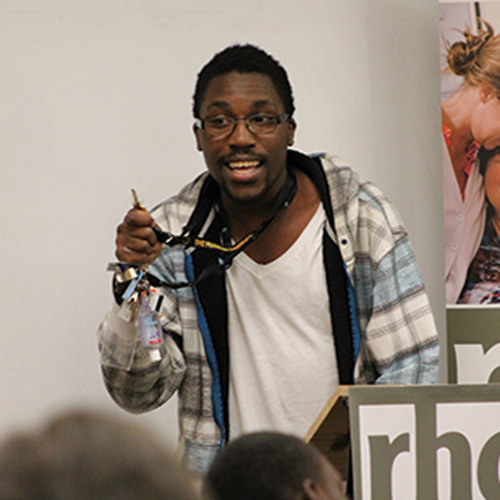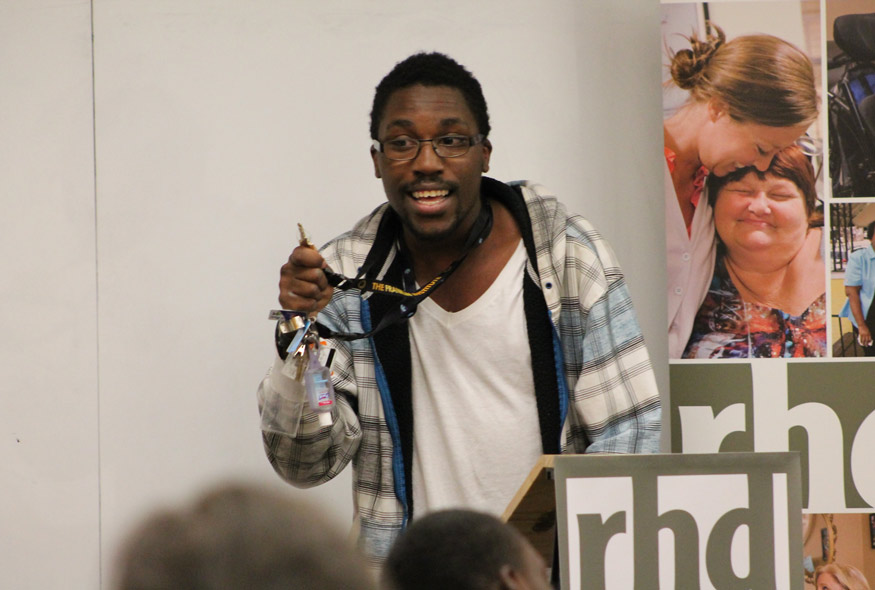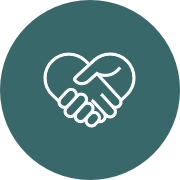
‘I felt like I made it’
Tyrone gripped the keys to his apartment tightly in his right hand. RHD’s La Casa was holding its first graduation ceremony, and at La Casa, graduating means young men are leaving the program and getting their own housing. For Tyrone, it was all about the keys in his hand.
“Getting my own apartment was a milestone in my life,” Tyrone said. “The day I got these keys, I felt like I made it.”
Tyrone was one of what La Casa Director Howard McNeil called “a growing epidemic of teenagers and emerging young adults who are filtering into the homeless population at an alarming rate.” La Casa is Philadelphia’s only safe haven for young males experiencing homelessness, and provides housing and services to individuals who for various reasons may have had difficulty accessing services from other homeless programs.
Safe havens like La Casa are an important part of RHD’s services for people experiencing homelessness, and figure prominently into the continuum of care. La Casa helps to increase supports around individuals, builds upon and develops safe coping skills, and empowers young men to work toward being productive members of society.
“Many are aging out of the Department of Human Services, foster care, and the juvenile system with nowhere to turn,” McNeil said. “Surviving on the streets brings with it elements of violence, exploitation, psychological abuse and other forms of abuse. At La Casa, we’ve found that just providing the bare necessities plays a significant role in facilitating treatment. Knowing where your next meal will come from, or where you’ll sleep at night, creates opportunities for engagement of additional therapeutic services and supports.”
LaQuan, a new participant at La Casa, described it this way: “I’ve been house-hopping for 13 years. When I came to La Casa was the first time I felt safe.”
La Casa serves 10 emerging adults with histories of homelessness, mental health, and/or addiction challenges. La Casa is dedicated to teaching life skills to young adults, building around evidence-based practices that will help them reintegrate back into the community of their choice.

“La Casa is helping me to better myself,” said Robert. “They’re not simply focusing on my housing, they’re focusing on me — me being able to create and sustain a future, learning life skills and job skills.”
Robert had been homeless and on the streets for more than a year, but at La Casa, he’s going back to school and has a stable job.
“I’ve seen nothing but good things here,” Robert said. “This is the most professional group of people I’ve worked with. They relate to me like they’re really hearing what I have to say. They don’t just see me as a client, they see me as a person.”
This year La Casa graduated its first group, supporting eight young men who moved from transitional housing into their own apartments.
“Without La Casa, so many of us would be in jail, be homeless, or worse,” said Donell, a former La Casa participant who is now in his own housing.
“The staff helps you get through everything, and keeps you on track,” said Kevin, a La Casa participant. “If it can work for me, it can work for anybody.”
La Casa utilizes a person-centered, strengths-based approach, and promotes a supportive, safe, and positive home-like environment that focuses on recovery and personal goal attainment.
“We want people to feel at home — until they get to their home,” said Nicole Simmons, La Casa Lead Direct Support Professional.
“What makes RHD’s La Casa a unique and valuable resource to the community is that we not only provide an alternative to homelessness, but we create opportunities for an at-risk population that otherwise would go underserved,” McNeil said.


